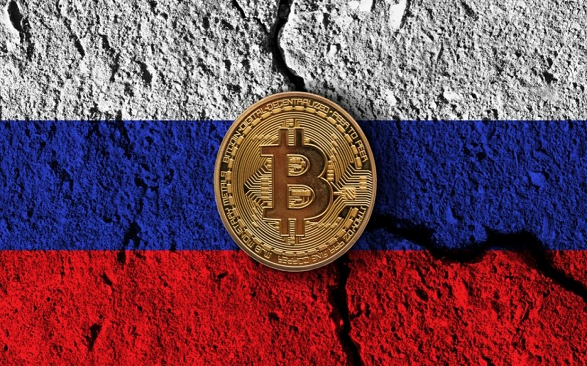Introduction
Russia’s apex bank, the Central Bank of Russia (CBR) is open to the use of cryptocurrency for international payments, as disclosed by a senior official of the CBR.
In a press briefing on Tuesday, May 31 reported on The Economic Times, the CBR’s First Deputy Governor, Ksenia Yudaeva said: “In principle, we do not object to the use of cryptocurrency in international transactions”. According to Yudaeva, the Bank as a regulator is exploring its possibility.
“We still believe that the active use of cryptocurrency within the country, especially within Russia’s financial infrastructure, creates great risks for citizens and users. We believe that in our country those risks could be reasonably large,” she said.
Russia as a country has been trying to properly regulate its crypto market and allow the use of digital currencies. Deliberations and consultations have been ongoing among various government sectors and lawmakers for a couple of months, although a consensus is yet to be reached.
When Russian Industry and Trade Minister Denis Manturov was recently asked at a forum whether Russia would legalize cryptocurrencies as a means of payment, Manturov’s response was that this was a question of when and how: “The question is, when this happens, how it will be regulated, now that the central bank and government are actively working on it.” He continued, “But everyone tends to understand that … sooner or later this will be implemented, in some format or other.”
Among the benefits of Russia allowing cryptocurrency to be used in international payments, the Ministry of Finance said last week that the move would help Russia cushion the impact of the sanctions imposed on the country over its invasion of Ukraine.
Yudaeva also said that these sanctions are injurious to the country’s financial stability, as Russian banks have been restricted internationally.
If Russia eventually decides to allow the use of cryptocurrency for international payments, it is most likely to further accelerate cryptocurrency regulations, particularly stablecoins and other payment tokens for remittances and cross-border transactions. Since this is outside the domain of securities and exchange commissions, this is where the Bank for International Settlements (BIS) as well as central or reserve banks come in. Given the understandable fears and concerns of apex banks around the world, should more restrictive approaches be expected or will we begin to see apex banks finally embrace risk-based regulation?
Founder & CEO of Kumo Africa, Abikure Tega, responds.
Responding to this development, Kumo Africa‘s Abikure Tega observed that “the same way Covid-19 has accelerated crypto adoption in recent times, it is the same way the Russia-Ukraine war is accelerating crypto adoption, but this time, crypto regulation as well. The reactions of governments and global regulators to Russia’s likely use of cryptocurrency as an alternative in the face of international sanctions prove this.”
The Kumo Africa boss called for risk-based regulation. “But as innovators and operators, we can only hope that the Central Bank of Russia’s (CBR) interest in the use of cryptocurrencies for international payments will, if anything, cause central banks around the world, including the Central Bank of Nigeria (CBN), to review its current restrictive approach to cryptocurrencies. What I believe the country needs is a risk-based approach to crypto adoption. The current approach kills innovation and disincentivizes entrepreneurship. Nigeria can do better.”
Discover more from Crypto Asset Buyer
Subscribe to get the latest posts sent to your email.







1 Comment
Henry Ligari
The decentralized system crypto brings to the table will aid Russia balance up in the international space. Buy beyond that it is a pointer to the fact that it seeks to be progressive in its approach to the future of transaction.
I hope Nigeria will step up and not remain in the stone age, where transfers of over a Million naira will require indemnity.
Comments are closed.